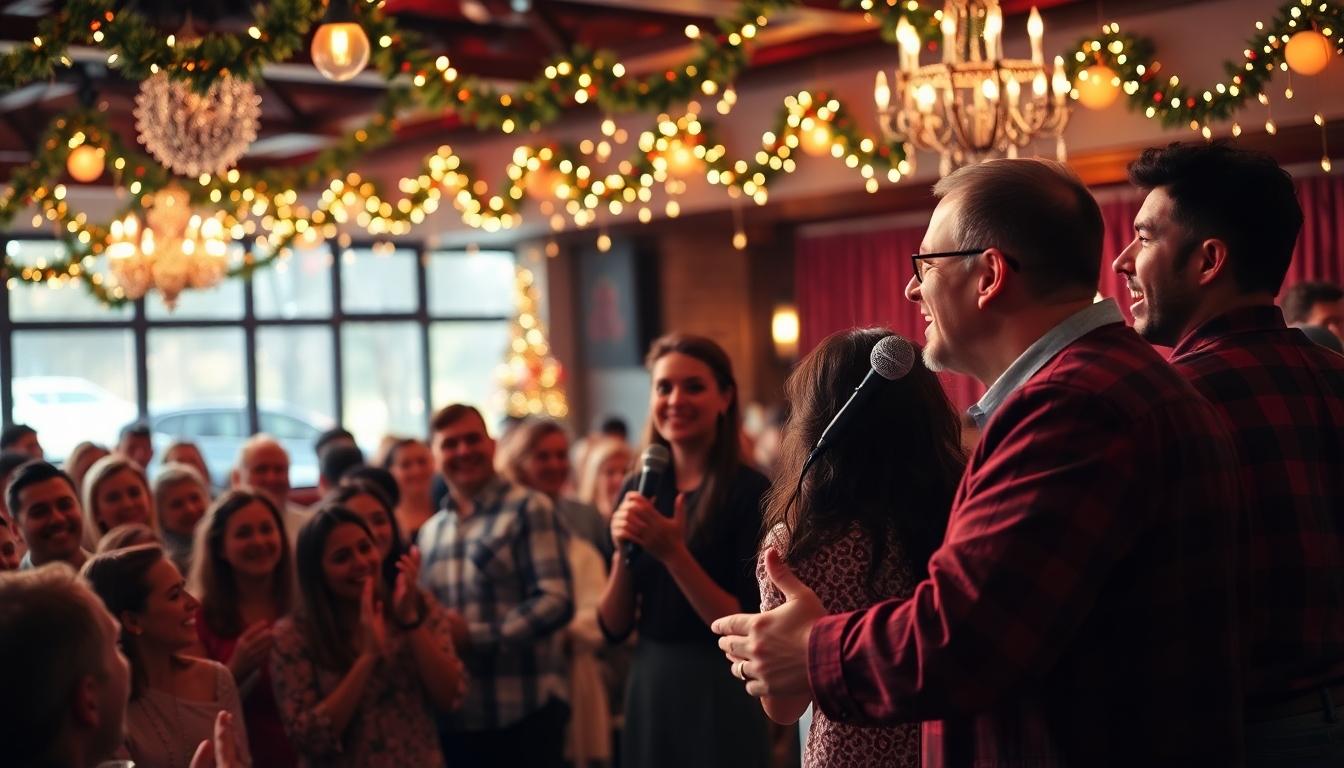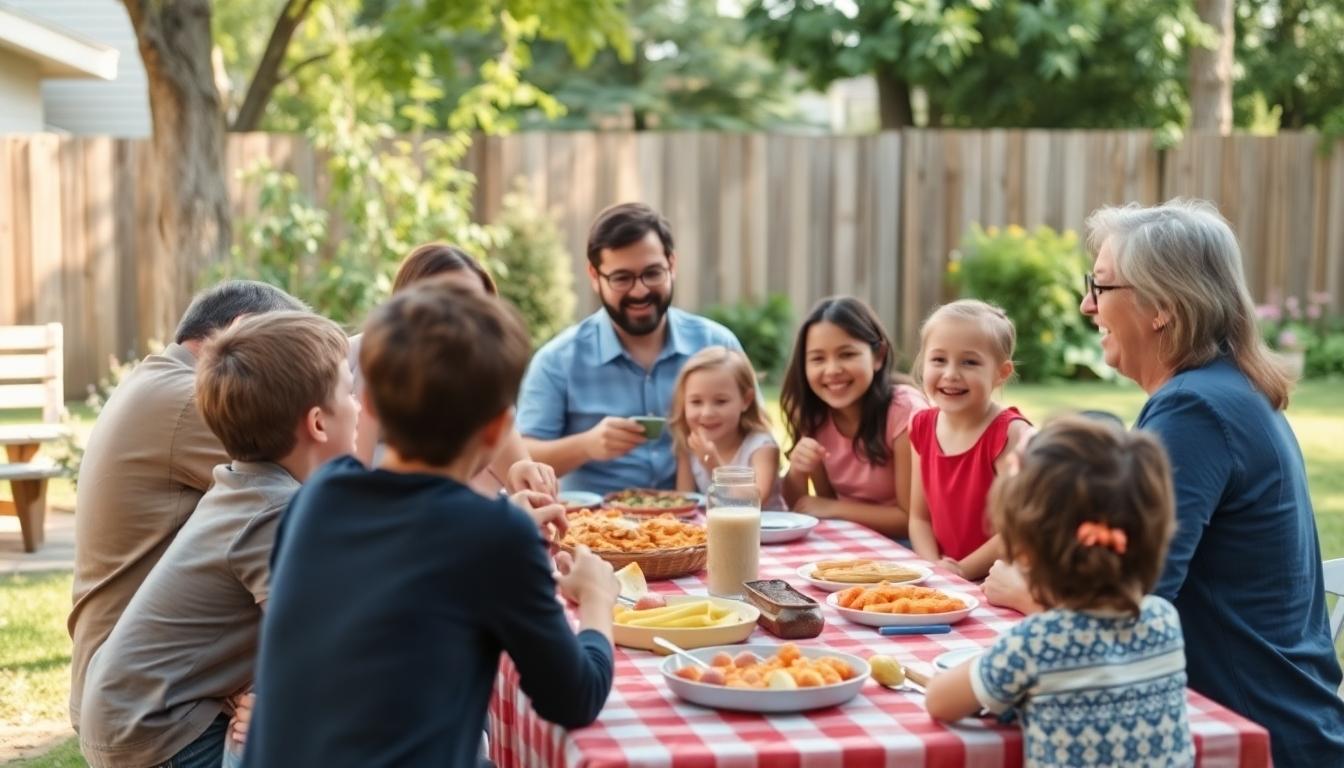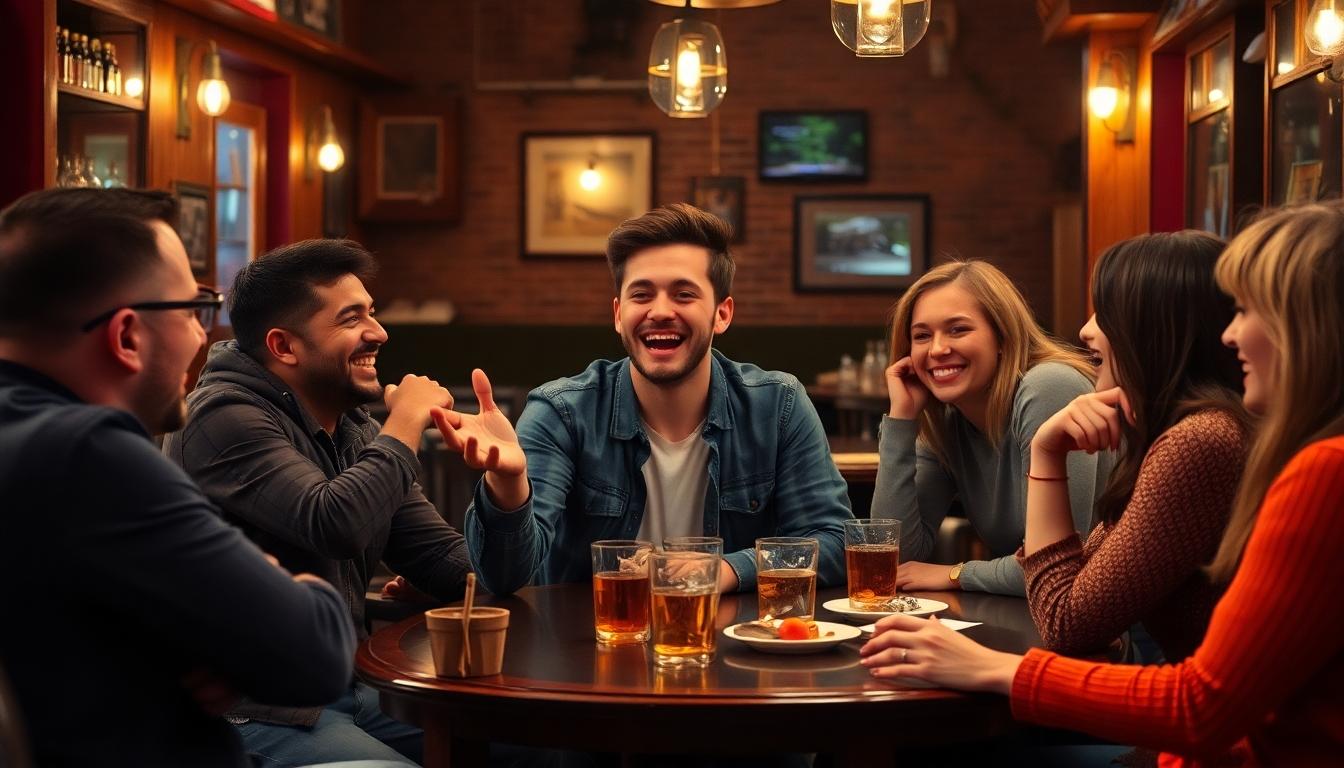Ever wondered how to deliver the perfect roast that leaves everyone laughing? Roast jokes have become an art form in comedy circles, balancing humor with just enough bite to entertain without crossing the line. We’ve gathered the ultimate collection of roasting zingers that’ll help you become the life of any party.
In this guide, we’ll explore roast jokes that range from playful teasing to masterful burns. Whether you’re preparing for a friendly gathering or a formal roast event, having the right material is crucial. Our curated selection offers something for every occasion and relationship—from light-hearted quips for close friends to workplace-appropriate jabs that keep things professional.
Understanding the Art of Roast Jokes: When Humor Gets Deliciously Brutal
Roast jokes exist in that fascinating gray area where comedy meets confrontation. They’ve evolved from private barbs among friends to mainstream entertainment featured in celebrity roasts and comedy specials. The essence of a good roast lies in its ability to highlight someone’s flaws or quirks while maintaining an undertone of affection rather than malice.
Successful roasting requires an intricate understanding of boundaries and relationships. You can’t simply hurl insults and expect laughter; there’s a delicate balance between being funny and being hurtful. Most effective roasts actually come from a place of familiarity and even respect, where the jokes acknowledge shared history and personality traits both parties recognize.
Timing plays a crucial role in landing a roast joke effectively. A well-timed roast can defuse tension, whereas poor timing might exacerbate an already sensitive situation. Reading the room becomes an essential skill for anyone looking to engage in this form of humor without crossing into offensive territory.
Context matters enormously when delivering roast jokes. What works perfectly at a bachelor party among close friends might be completely inappropriate at a professional gathering or family reunion. We’ve found that understanding your audience is perhaps the most critical factor in successful roasting.
Cultural sensitivity should never be overlooked when crafting roast jokes. Different cultures have varying tolerances for directness and personal comments, with some appreciating sharp wit while others value more subtle forms of humor. Always consider cultural backgrounds before unleashing your roasting skills.
Self-deprecation often serves as the foundation for respectful roasting. By demonstrating you can laugh at yourself first, you establish a tone that permits others to join in. Many professional comedians start roast segments with jokes at their own expense precisely for this reason.
The target’s reaction eventually determines a roast joke’s success. If they’re laughing along, you’ve hit the sweet spot of humor without causing genuine discomfort. Their discomfort signals you may have pushed too far, requiring a quick adjustment in your approach.
Body language offers valuable clues about how your roast is being received. Crossed arms, forced smiles, or averted gazes suggest you should dial back the intensity. Genuine laughter and relaxed postures indicate you’ve struck the right balance in your delivery.
10 Classic Roast Jokes That Have Stood the Test of Time

Art in a Dumpster
Your face is like a work of art—unfortunately, it’s in a dumpster! This classic comparison delivers a quick one-two punch by first complimenting someone before immediately deflating their ego.
Dense as a Black Hole
If you were any more dense, you’d be a black hole! This scientific burn cleverly uses physics to comment on someone’s intelligence while maintaining a playful tone.
Software Update
You’re like a software update—nobody wants to deal with you right now! In our tech-driven industry, this modern classic resonates with anyone who’s ever postponed that annoying update notification.
Candle in the Wind
You’re like a candle in the wind—dimming fast and nobody cares! This joke borrows from poetic imagery to deliver a surprisingly sharp jab about someone’s fading relevance.
Know-It-All Reflection
If I wanted to hear from a know-it-all, I’d just ask your reflection! This mirror-focused zinger works brilliantly to call out self-important attitudes with creative flair.
Surprise Piñata
You’re like a piñata—full of surprises, but mostly just nonsense! Comparing someone to a festive party favor softens the blow while still delivering a memorable insult.
Beige and Boring
If you were a color, you’d be beige—so boring! Simple yet effective, this color-based burn instantly communicates exactly how uninteresting you find someone.
Crashing Browser
Your brain is like a browser—always crashing! This tech-inspired joke provides a perfect way to comment on someone’s thought process or forgetfulness.
Broken Record
You’re like a broken record—repeating the same old nonsense! Sometimes the classics work best, and this timeless comparison calls out repetitive behavior with surgical precision.
Forgotten Goldfish
If you were a fish, you’d be a goldfish—always forgetting everything! This animal-themed roast delivers a lighthearted way to poke fun at someone’s memory issues.
Celebrity Roast Classics from Comedy Central
Comedy Central roasts have elevated the art form with memorable zingers that balance sharp wit and playful teasing. One standout example includes the dismissive “I’m actually sorry to see you showed up tonight—I won’t be getting any table scraps,” which cleverly disguises disappointment as an insult. Another classic comparison states, “You’re like Orson Welles, without all that genius…” subtly undermining someone by measuring them against greatness they can’t reach.
Timeless Friend Group Zingers
Friend groups have perfected the art of playful ribbing with timeless classics that mix humor and affection. The rhyming format remains especially popular with gems like “Roses are red, violets are blue, I thought I was ugly until I met you!” This playground classic gets laughs through its unexpected twist on a familiar poem. Another memorable rhythmic roast states, “Poof be gone, your breath is too strong, I don’t want to be mean, but you need Listerine,” tackling personal hygiene with enough humor to soften the blow.
How to Deliver the Perfect Roast Without Crossing the Line

A successful roast walks the fine line between humor and offense. We’ve compiled expert strategies to help you deliver memorable jokes while maintaining respect for your target.
Reading the Room: Knowing Your Audience
Tailoring your jokes to the exact audience is crucial for a successful roast. Always consider how familiar attendees are with the roastee before selecting your material. Self-deprecating humor works effectively as it establishes a playful tone that invites others to laugh along. Exaggerated truths that align with how the person sees themselves—like a friend’s obsession with obscure hobbies—typically land better than completely fabricated claims. Avoid using inside jokes when addressing broader groups as they’ll leave most listeners confused rather than entertained. Testing your material with a trusted friend beforehand can provide valuable feedback on appropriateness and potential impact. Remember that jokes landing well depends on shared experiences and mutual understanding between all parties involved.
Balancing Humor and Respect
Structuring your roast properly creates the perfect balance between laughs and admiration. Begin with a positive introduction that highlights your relationship with the roastee and sets a friendly tone. Follow with humorous anecdotes that gently tease recognizable traits—for instance, you might joke about a colleague’s perfectionism while making it clear their attention to detail is actually impressive. Always conclude your roast on an uplifting note by emphasizing genuine accomplishments or qualities you admire. This approach ensures no lingering bad feelings after the laughter subsides. Steer clear of deeply personal topics, physical appearance comments, or culturally sensitive subjects unless you’ve received explicit permission to venture into these areas. The most successful roasts use gentle mockery through playful exaggeration rather than harsh insults that could genuinely hurt feelings. Your ultimate goal should be entertaining the room while reinforcing your positive relationship with the roastee.
15 Savage Yet Hilarious Roast Jokes for Friends

Looking for ways to playfully tease your friends without crossing any lines? We’ve compiled a collection of roast jokes that balance savage humor with affection.
- On Food Habits: “You’re allergic to everything except your own cooking.”
- On Clothing: “You look like you raided a thrift store and put everything on.”
- On Intelligence: “You’re so smart, you figured out how to turn the lights off by unplugging them.”
- On Travel: “You’ve traveled so much, you need a map to find your room.”
- On Gaming: “You’re great at video games, almost as good as your excuses for losing.”
- On Sports: “You’re the only person I know who can trip over air molecules.”
- On Technology: “Your phone is smarter than you.”
- On Reading: “I’ve seen you read a whole book, cover to cover… of a comic.”
- On Music: “You sing so well, nobody needs a fire alarm anymore.”
- On Driving: “You’re a great driver, except when you’re actually driving.”
- On Fashion Trends: “You wear socks with sandals, I think that’s a statement.”
- On Cooking: “Your dishes are so bad, they’re good… for the compost.”
- On Work Ethics: “You’re so lazy, you’d procrastinate your own birthday.”
- On Social Media: “Your social media is so active, I thought you were a bot.”
- On Exercise: “You exercise by walking to the fridge and back.”
Appearance-Based Roasts That Stay Playful
Appearance jokes work best when they focus on changeable attributes rather than sensitive physical characteristics. These roasts poke fun at style choices and self expression without crossing into hurtful territory:
- Hair: “Your hair is so wild, it has its own Instagram account.”
- Height: “You’re so short, you need a stool to reach the bar.”
- Style: “You dress like a work of art—some people hate it, but it’s interesting.”
Personality Quirk Roasts That Show You Care
The best roasts often highlight endearing quirks that make your friends unique. These jokes work because they acknowledge personality traits with affectionate teasing:
- On Optimism: “You’re so positive, you think the sky is always blue, even at night.”
- On Punctuality: “You’re always late, but fashionably so.”
Family-Friendly Roast Jokes for Gatherings and Reunions

Family gatherings present the perfect opportunity to share lighthearted roasts that create lasting memories without crossing boundaries. We’ve compiled a collection of family-friendly jokes that foster connection rather than conflict, ensuring everyone from grandparents to little ones can participate in the fun.
Key Benefits of Roast Jokes
Family roasts offer more than just laughs when done properly. Lighthearted teasing actually strengthens relationships by creating shared moments of humor that bring family members closer together. Children benefit tremendously from appropriate roasting environments, developing crucial social skills as they learn to balance humor with sensitivity toward others’ feelings. Creative wordplay in family roasts enhances language skills too, encouraging everyone to experiment with metaphors and contextual humor that sharpens wit.
Example Jokes for Gatherings
Looking for the perfect family-friendly roast? Try relatable humor like: “Your cooking is so unique, it should come with a warning label!” This type of joke works because it focuses on actions rather than personal attributes. Playful comparisons create instant laughs without hurt feelings: “You’re like the family group chat—always buzzing but rarely interesting!” Self-deprecating twists show good sportsmanship: “If I were a family vacation, I’d be the one everyone complains about!” Nostalgia-driven jokes connect generations through shared memories: “Your dance moves are like family photos—stuck in the past!”
Guidelines for Use
Successful family roasts require careful navigation of boundaries. Always avoid sensitive topics by focusing on harmless quirks such as cooking styles or hobby choices rather than personal insecurities that might truly hurt feelings. Encourage reciprocity in your family roasting sessions, ensuring everyone feels comfortable both giving and receiving jokes in a spirit of mutual enjoyment. Context matters significantly when roasting across age groups—younger children respond better to softer teasing like “You’re our favorite human blanket!” while teens and adults can handle more creative comparisons.
By following these strategies, your family roasts will remain inclusive and memory-focused, creating positive experiences that strengthen bonds rather than strain them. The collaborative spirit of family gatherings provides the perfect backdrop for humor that celebrates each member’s unique place in your shared story.
Professional Setting Roast Jokes: Keeping It Workplace Appropriate

Introduction to Roast Jokes
Roast jokes in professional environments require careful balancing between humor and respect. Handling workplace humor demands an understanding of boundaries that preserve professional relationships while still allowing for lighthearted moments. The office setting presents unique challenges for roasting, as jokes must remain appropriate while still delivering that characteristic playful punch.
Tips for Appropriate Roast Jokes in the Workplace
- Know Your Audience: Before delivering any workplace roast, assess your colleagues’ comfort levels and humor preferences. Different team members have varying thresholds for jokes, and what makes one person laugh might make another uncomfortable.
- Avoid Personal Insults: Focus your roasting strictly on work-related behaviors or situations rather than physical appearance or personal traits. Professional roasts should center on harmless observations about work habits that everyone can recognize and laugh about.
- Be Respectful: Maintain a foundation of respect in all workplace humor. Jokes that preserve dignity while still being funny create the perfect balance for professional environments where relationships need to remain positive.
Examples of Workplace-Appropriate Jokes
- Why did the employee bring a ladder to work? They wanted to reach their full potential.
- Why did the coffee file a police report? It got mugged.
- Why was the computer sitting on the couch? It needed to unwind.
-
Your inbox is like the Bermuda Triangle – emails go in but responses never come out.
-
You’ve attended so many meetings that your real job title should be ‘Professional Chair Warmer.’
Considerations
- Be Sensitive to Culture: Steer clear of jokes that rely on cultural stereotypes or references that might not translate well across diverse teams. Cultural sensitivity ensures your humor brings people together rather than creating division.
- Read the Room: Pay attention to how your jokes are received and adjust accordingly. Facial expressions and body language offer immediate feedback about whether your humor is landing well or falling flat.
- Timing Matters: Choose appropriate moments for workplace roasts, such as designated team-building events or casual Friday gatherings. Avoiding serious meetings or high-stress periods helps ensure your jokes are well-received.
Self-Deprecating Roast Jokes: The Art of Roasting Yourself

Self-deprecating roast jokes showcase the unique ability to make fun of yourself before others get the chance. This type of humor demonstrates confidence and the refreshing quality of not taking yourself too seriously. We’ve compiled examples and insights into this popular comedy technique that can disarm critics and win over audiences.
Types of Self-Deprecating Jokes
- Physical Appearance
Physical appearance jokes turn your own looks into comedy gold. “In photos, I’m ugly. In real life, I’m also ugly!” serves as a perfect example of embracing perceived flaws with humor. Another classic is “If body heat was based on physical attractiveness, everyone within a 1-mile radius of me would freeze to death.” These jokes work because they playfully exaggerate insecurities many people share.
- Personal Flaws
Personal flaw jokes address character traits or habits you’re aware need improvement. “I’ve got 99 problems, and 98 of them can be attributed to poor time management and self-control” resonates with anyone who struggles with productivity. Similarly, “I might be obnoxious, but at least I’m also annoying” cleverly doubles down on a negative trait, creating unexpected humor through irony.
- Lifestyle and Behavior
Lifestyle jokes poke fun at your daily choices and actions. “New year, same mistakes” perfectly captures the universal struggle with resolutions and change. Another example is “My future self is probably cursing about me right now, so I’m going to ruin his/her life.” These jokes acknowledge life’s challenges while finding humor in them.
Usage in Comedy
Professional comedians frequently employ self-deprecation as a cornerstone of their routines. Jim Gaffigan masterfully uses this technique when joking about his weight, particularly emphasizing his struggles with fitting into his own socks. This approach helps performers create an instant connection with audiences who appreciate authenticity and relatable humor.
Benefits
Self-deprecating humor offers important social advantages beyond just laughs. It effectively neutralizes potential criticism by addressing obvious flaws before others can point them out. This type of joking demonstrates humility and self-awareness that most people find attractive in social settings. It also serves as a clever form of self-defense, making others less likely to criticize you when you’ve already acknowledged your imperfections.
Cultural Impact of Roast Jokes in Modern Comedy

From Friendly Banter to Cultural Phenomenon
Roast jokes have evolved from simple friendly banter to a important cultural phenomenon with deep roots in American humor. Originally conceived as events where a guest of honor would be humorously mocked by their peers, these performances carefully balance genuine praise with good-natured ridicule. The format relies heavily on the roastee’s consent and ability to take jokes without offense, creating a unique social contract between performer and subject. Over time, roasts have transformed into cultural rituals that celebrate resilience and self-awareness, particularly among celebrities who willingly subject themselves to public mockery.
Mainstream Popularity Through Television
Comedy Central’s televised roast specials dramatically increased the popularity and visibility of this comedy format. These programs strategically use public controversies of figures like Justin Bieber as comedic material, turning potential embarrassments into entertainment. The massive viewership these shows attract highlights society’s fascination with disparagement humor. Psychologists connect this appeal to audience superiority—viewers often gain a sense of self-esteem by contrasting themselves with the roastee’s exaggerated flaws. This psychological mechanism aligns perfectly with Aristotle’s ancient distinction between comedy (which portrays “worse” human traits) and tragedy.
Social Function of Roasting
Roast jokes serve as important social tools that reinforce group cohesion through shared laughter at controlled mockery. The traditional roast format emphasizes mutual respect even though the harsh jokes, creating a paradoxical expression of affection through insult. Studies suggest that this form of humor strengthens social bonds while providing a sanctioned space for expressing thoughts that might otherwise remain unsaid. The roastmaster plays a crucial role in this ever-changing, serving as a parody of a traditional toastmaster while establishing the tone and boundaries of the event.
Digital Transformation of Roast Culture
Internet culture has dramatically transformed roasting practices, creating both opportunities and challenges. User-generated roasts thrive across digital platforms, democratizing what was once a more formal entertainment format. Unfortunately, online roasting often blurs into cyberbullying, lacking the consensual framework and mutual respect found in traditional live events. This digital evolution reflects broader shifts in norms around irreverence and civility, raising important questions about where we draw the line between humor and harm.
Societal Mirror and Cultural Criticism
Roast jokes function as a societal mirror, reflecting our collective values while testing the boundaries of acceptable discourse. The enduring appeal of roasts centers on honoring individuals who embody humility and good humor under fire. When executed properly, roasts validate the target’s importance to the community while acknowledging their flaws. But, critics raise valid concerns about normalizing hostile comedy, warning about potential desensitization to personal attacks. This tension between celebration and critique makes roast humor a fascinating window into evolving social norms around respect, humor, and public discourse.
How to Respond When You’re on the Receiving End of a Roast

Finding yourself on the receiving end of a roast joke can be unexpected, but how you respond often determines whether the moment becomes awkward or entertaining. Handling roasts gracefully demonstrates confidence and social intelligence, turning potentially uncomfortable situations into opportunities for connection. Here are effective strategies to respond when someone roasts you:
Maintain a Sense of Humor
Laughing along with the joke shows you don’t take yourself too seriously. Your ability to appreciate humor directed at you often earns respect from others in the room. Smiling and nodding acknowledges the joke without letting it affect your confidence. The simple act of genuinely laughing creates a positive atmosphere that defuses any potential tension.
Return With a Witty Comeback
Responding with your own clever joke turns the exchange into playful banter rather than a one-sided roast. Quick, tongue-in-cheek comebacks like “I’m jealous of people who have never met you” can flip the script effectively. Creative responses demonstrate your quick thinking and ability to participate in the back-and-forth of good-natured teasing. Preparing a few general comebacks in advance can help you respond confidently in the moment.
Ask a Question
Questioning the roaster about their joke can subtly address boundaries without seeming defensive. Phrases like “Did you really mean that?” or “Why do you feel comfortable saying that?” prompt reflection without escalating the situation. This approach works particularly well when a joke borders on being too personal or inappropriate. Asking questions shifts the ever-changing and often makes the roaster consider the impact of their words.
Stay Calm and Composed
Maintaining your composure prevents the situation from becoming uncomfortable for everyone involved. Taking a deep breath before responding helps manage any initial emotional reaction. Avoiding defensive body language communicates confidence even if the joke caught you off guard. Professional comedians master this technique, showing that keeping cool under fire is an admirable skill.
Use Self-Deprecation
Joining in with your own self-deprecating humor shows security in yourself and diffuses any perceived attack. Adding to the joke about yourself demonstrates confidence and often earns laughs from the group. Self-deprecation works best when you acknowledge the roast but add your own humorous spin to it. This response strategy builds connection rather than creating distance between you and the roaster.
Know When to Set Boundaries
Recognizing when a roast crosses the line from playful to hurtful is important for self-respect. Calmly stating “That one went a bit far” signals your boundaries without creating drama. Addressing particularly offensive jokes privately rather than publicly often preserves relationships while making your position clear. Setting boundaries teaches others how to interact with you respectfully while still maintaining a sense of humor.
Apologize If Necessary
If you’ve misinterpreted someone’s intent and reacted poorly, offering a sincere apology restores harmony. Acknowledging when you’ve overreacted to a harmless joke shows emotional intelligence and maturity. Clear communication about your feelings helps prevent similar misunderstandings in the future. Apologies work both ways in roasting situations, creating mutual respect and understanding.
Practice the Art of the Playful Challenge
Responding with a playful challenge like “Tell me something… if I didn’t answer you the first time, what makes you think the next 25 attempts will work?” creates captivating banter. This approach acknowledges the roast while cleverly turning the tables on the roaster. Playful challenges work especially well with friends who appreciate quick-witted exchanges. The key is maintaining a lighthearted tone that invites continued positive interaction rather than escalation.
The Psychology Behind Why We Love Roast Humor

Roast humor actually serves as a powerful social bonding mechanism, strengthening our relationships through what psychologists call “pro-social teasing.” Research shows that close friends who engage in lighthearted roasting demonstrate deep familiarity with each other’s strengths and weaknesses, eventually fostering trust and affiliation between them. When we poke fun at flaws in a playful manner, these interactions reinforce humility and help deflate egos, which psychologist Peter Gray, Ph.D., describes as a form of constructive social control.
The act of roasting signals mutual acceptance of imperfection among friends. Individuals who allow themselves to be mocked effectively communicate that they don’t consider themselves superior to others, reinforcing egalitarian dynamics within friendships. This ever-changing aligns perfectly with the concept that roasts function as an antidote to narcissism by normalizing vulnerability and self-deprecation.
Audience members experience roast humor differently, often enjoying a self-esteem boost by invoking feelings of superiority—a concept rooted in Aristotle’s distinction between comedy and tragedy. Studies by Thomas Ford and Mark Ferguson examine how disparagement humor creates a sense of communal tolerance for critical opinions, though this can risk normalizing harmful stereotypes in certain contexts.
True pro-social teasing distinguishes itself from bullying by carefully balancing affection with critique. Friends typically use roasts to address flaws in a non-threatening way, encouraging introspection while maintaining emotional safety. The resulting ever-changing helps everyone “stay grounded” while simultaneously strengthening relational resilience between participants.
- Enhanced bonding through shared vulnerability and trust development
- Increased humility by mitigating narcissistic tendencies through highlighting imperfection
- Feelings of superiority that provide audience enjoyment and social elevation
- Effective social control as teasing acts as a corrective mechanism within peer groups
Conclusion: Mastering the Fine Line Between Funny and Offensive
Roast jokes are an art form that requires finesse timing and a genuine affection for your target. When done right they strengthen bonds create memorable moments and showcase wit at its finest.
We’ve shared strategies for various settings from friendly gatherings to professional environments along with tips for crafting jokes that land perfectly without causing harm.
Remember the golden rule of roasting: it’s about celebrating someone’s uniqueness not tearing them down. The best roasts leave everyone laughing especially the person being roasted. So go ahead sharpen your comedic skills and enjoy the special connection that comes from good-natured ribbing among people who truly care about each other.
Frequently Asked Questions
What is the key to delivering a good roast joke?
The key is balancing humor and respect. Effective roasting requires understanding boundaries, relationships, and timing. You must read the room to avoid crossing into offensive territory and ensure your jokes contain more affection than malice. Self-deprecation helps establish a tone that invites humor, while paying attention to the target’s reaction determines if your joke lands successfully.
Are roast jokes appropriate in professional settings?
Roast jokes can work in professional settings with careful consideration. Know your audience, avoid personal insults, and maintain respect. Focus on work-related habits rather than personal characteristics, be culturally sensitive, and always read the room. Timing is crucial – appropriate moments include structured events like retirement parties or team-building activities.
How can I tell if my roast joke has gone too far?
Watch the target’s body language – if they appear uncomfortable, tense, or force laughter, you’ve likely crossed a line. A successful roast creates genuine laughter and maintains a positive atmosphere. If others in the room seem uncomfortable or if the joke creates awkward silence, it’s a clear sign you’ve gone too far.
What topics should I avoid when roasting someone?
Avoid deeply personal topics like serious health issues, family tragedies, religious beliefs, political views, or genuine insecurities. Stay away from immutable characteristics like race, gender, sexual orientation, or disabilities. Focus instead on changeable attributes, harmless quirks, or widely known habits that the person is comfortable joking about.
How can I use self-deprecating humor effectively in roasts?
Start with self-deprecation to establish a playful tone before roasting others. Make fun of your own similar traits to create connection rather than division. This approach demonstrates humility, neutralizes potential criticism, and signals that the roasting is all in good fun. Self-deprecation shows you can take a joke as well as give one.
What makes family-friendly roast jokes different from regular roasts?
Family-friendly roast jokes focus on lighthearted teasing rather than cutting remarks. They avoid sensitive topics, use clean language, and emphasize shared experiences and relatable quirks. These jokes celebrate family bonds rather than exploit vulnerabilities. They’re designed to include everyone in the laughter while strengthening relationships and creating positive memories.
How should I respond when being roasted?
Maintain a sense of humor and show you can take a joke. Respond with a witty comeback if possible, or simply laugh along to show good sportsmanship. If a joke crosses your boundaries, calmly address it privately later. Using self-deprecation can diffuse tension, while staying composed shows confidence. Remember that good-natured roasting often indicates affection and inclusion.
What’s the psychology behind why roast jokes strengthen relationships?
Roast jokes function as “pro-social teasing” that builds trust through shared vulnerability. By voluntarily exposing ourselves to criticism in a controlled, humorous context, we demonstrate trust in others and normalize imperfection. This creates a sense of psychological safety within the group, reinforces humility, and develops deeper connections through the shared experience of navigating social boundaries together.
How should I structure a formal roast presentation?
Start with a positive introduction that establishes your relationship with the person. Follow with humorous anecdotes and observations that gently tease without humiliating. Intersperse genuine compliments among jokes to maintain balance. Conclude on an uplifting note that reinforces your positive relationship. This structure ensures the roast remains entertaining while preserving respect.
What’s the difference between roasting and bullying?
Roasting is consensual, affectionate, and reciprocal, while bullying is non-consensual, malicious, and one-sided. Roasts target changeable behaviors rather than immutable characteristics, and the target genuinely enjoys the experience. The intention behind roasting is to entertain and connect, not to harm or exclude. True roasting leaves everyone, including the target, feeling included in the shared humor.







